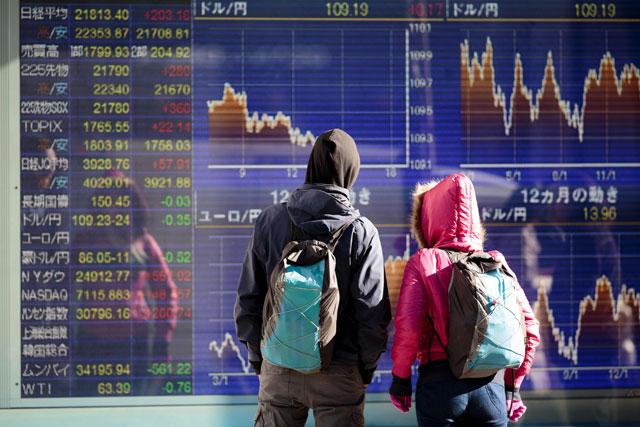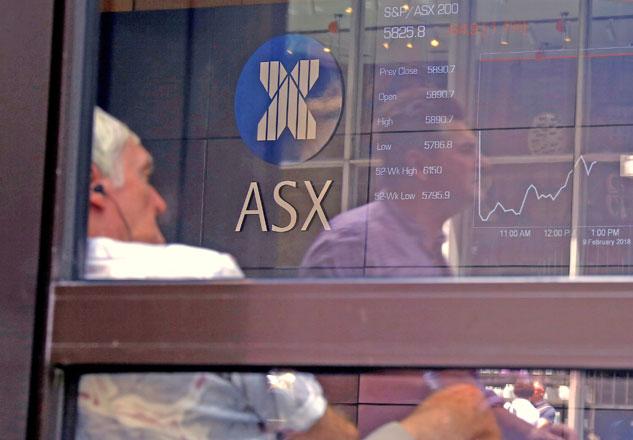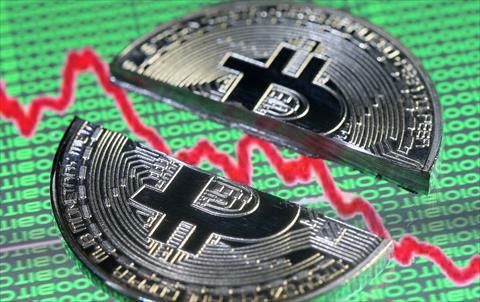You are here
Markets stagger towards end of worst year since financial crisis
By AFP - Dec 31,2018 - Last updated at Dec 31,2018

This photo taken on Sunday shows a vendor waiting for customers at her market stall ahead of New Year's Eve in Shenyang in China's northeastern Liaoning province (AFP photo)
LONDON — World stock markets staggered on Monday towards the end of their worst year since the global financial crisis a decade ago, rocked by rising interest rates, the global trade war and Brexit, dealers said.
London and Paris wobbled in holiday-shortened trade on New Year's Eve — but nursed dizzying double-digit annual falls after an exceptionally volatile 2018.
Hong Kong rose on Monday after US President Donald Trump hailed "big progress" on resolving Washington's trade war with Beijing, but was down almost 14 per cent over the year.
Equities have been hammered in 2018 by tighter monetary policy — from both the US Federal Reserve and also the European Central Bank, which halted its quantitative easing stimulus policy this month.
"Global stocks are set for their worst year since the financial crisis, thanks to the tightening monetary policies adopted by several central banks around the globe — especially the Federal Reserve and the ECB", said ThinkMarkets analyst Naeem Aslam.
"The Fed stopped printing easy money a few years back and increased interest rates four times this year.”
"The ECB also ended its quantitative easing programme and there has been discussion on... normalising interest rates."
The Bank of England, meanwhile, hiked British interest rates in August for the second time since the financial crisis to help tame inflation, despite worries that Brexit could wreak havoc on the economy.
'America First'
Sentiment was also slammed by US President Donald Trump's 'America First' trade policy which has sparked a damaging trade war with China and others.
Wall Street did however mark the longest-ever "bull market" in August, a run that began amid extraordinary crisis-era monetary policy — but for which Trump has claimed credit after his tax cuts and regulatory rollbacks.
Yet, markets have since spiralled lower on slowing global growth, Italy's fiscal woes, a US government shutdown and Trump's attacks on the Fed.
Investors also ran for cover as the uncertain nature of Britain's looming exit from the European Union in March 2019 casts a long shadow.
"Stock markets have been on a wild ride this year and the United States has been at the centre," Oanda analyst Craig Erlam told AFP.
"Tax reforms hugely boosted earnings, bringing an economic boost with it," he said.
However, "the trade war with China and skirmishes elsewhere have weighed heavily on the relevant domestic markets which has dented investor sentiment".
Washington and Beijing imposed tit-for-tat tariffs on more than $300 billion worth of goods in total two-way trade earlier this year, locking them in a conflict that has begun to eat into profits and contributed to stock market plunges.
While investors remain concerned, relations have thawed since Chinese President Xi Jinping and Trump agreed to a 90-day trade truce in early December while the two sides work to ease trade tensions by March 1.
Chinese state news agency Xinhua quoted Xi as telling Trump both leaders want "stable progress".
In Europe, on Monday, London's benchmark FTSE 100 index dipped 0.1 per cent to finish at 6,728.13 points, marking a sharp annual loss of 12.5 per cent.
The Paris CAC 40 climbed 1.1 per cent to end at 4,730.69 points — which was drop of nearly 11 per cent for the year.
Many investors were away for Christmas and New Year holidays, while trading hubs including Frankfurt, Rome, Tokyo, Shanghai and Seoul were shut.
Return to recession?
"2018 has been characterised by a shift from low volatility, high liquidity and expectations of equity out-performance to high volatility, low liquidity and the return of a bear market in equities," said VTB Capital economist Neil MacKinnon.
"For 2019, a global economic slowdown — perhaps recession — looks increasingly likely," he warned.
Key Asian markets also limped towards the end of the year in bear market territory — meaning that they are 20 per cent below their most recent peaks.
Tokyo's benchmark Nikkei index had rounded out 2018 on Friday with its first annual loss since 2011, and Shanghai became the worst-performing major global stock market, dropping by nearly a quarter.
Related Articles
US stocks overturned early losses to trade higher on Wednesday as some buyers returned to a market still shaking from a record fall for the
LONDON — US and European stock markets rebounded on Monday, but the danger of ever more volatility kept investors' nerves under strain.Wild
HONG KONG — Most Asian markets on Friday saw in the Christmas break on a positive note, picking up the baton from Wall Street while the euro














